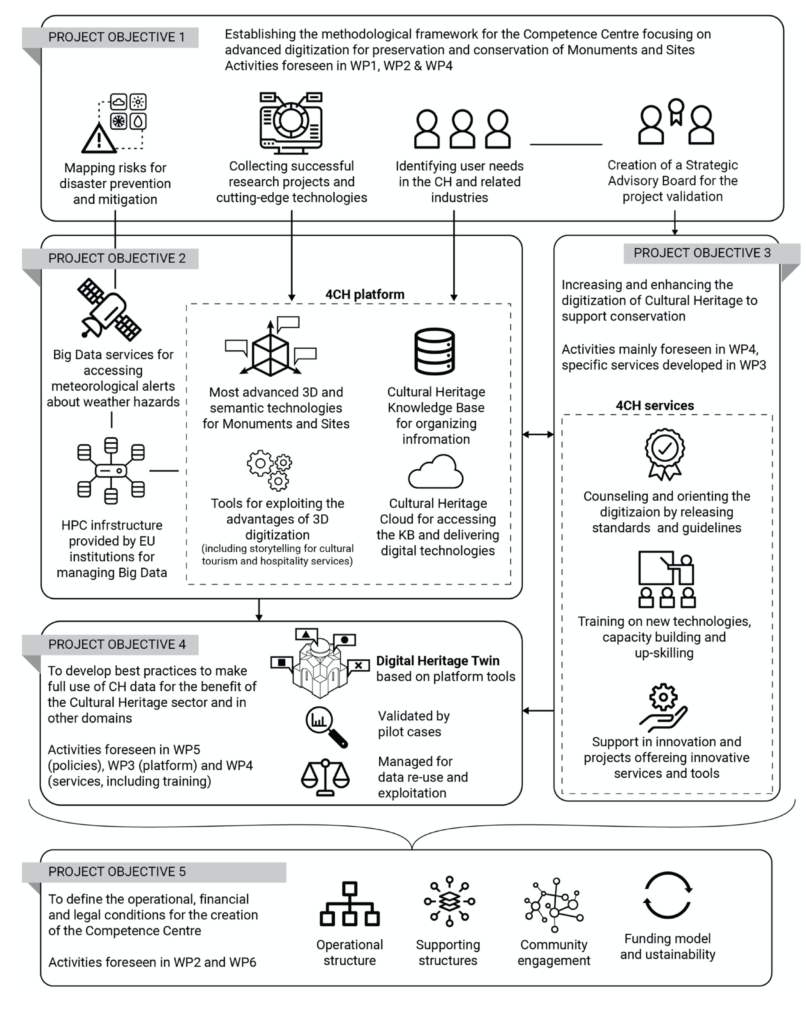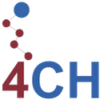The term Competence Centre is used in different contexts to describe an infrastructure dedicated to knowledge organization and transfer, and may have different meanings according to focus area, scope, domain, and socio-economic framework. It is usually associated with excellence, training and knowledge transfer, interdisciplinarity, standardization, and a collaborative approach of different institutions or departments. Also, the structure, operational mode and organization of existing Competence Centres vary very widely.
The name European Competence Centre for the Conservation of Cultural Heritage broadly defines the ambit (Europe), scope (Cultural Heritage), and focus (Conservation). Such definition, however, cannot be interpreted in a strict way, because of the broad interrelations inherent to the concept of culture, which prevent circumscribing the Centre’s action to a strictly limited framework.
The mission assigned by the European Commission to the Centre already indicates that it should consider heritage valorisation together with conservation and preservation.
Although the Centre will focus on the immovable component of heritage consisting of monuments and sites, it is impossible to cut off the related movable component, usually stored in museums, which contextualizes and is contextualized by the immovable one. In the so-called third regime of cultural heritage, envisaged by the current heritage research, these two components must be considered as intertwined with the social environment and its intangible aspects.
The above explains why the 4CH project will dedicate the initial part of its work to explore and identify the focus of the Competence Centre action, the perceived needs of its users, and its organizational structure.
An already defined pillar of the Centre is digitization, in all its implications and applications, such as, for example, availing of rich digital replicas of monuments and sites to document them and prevent their degradation, or managing the related knowledge with a state-of-the-art computer-based approach and tools.
In the Centre design we do not start from scratch, however. The objectives of the 4CH project are already identified as follows:
- Advice:
- Establishing a regularly updated map of research and cutting-edge technologies related to preservation, conservation and sustainable promotion of monuments and sites.
- Reporting on the most valuable initiatives, experiences and best practices across Europe and internationally.
- Support:
- Promoting a holistic and multidisciplinary approach to the conservation of cultural Heritage.
- Facilitating coordination between Heritage Agencies and CH Institutions across Europe and ongoing European initiatives.
- Building an effective partnership to promote the conservation and valorisation of CH.
- Enabling the take up and transfer of research project results by the cultural heritage sector.
- Services:
- Defining training and upskilling programmes for cultural heritage institutions, operators and professionals.
- Developing consultancy, guidelines and protocols concerning the use of ICT with a special attention to technologies for cultural heritage management.
This leads to a preliminary design, to be analysed, improved and – if necessary – amended by the initial analysis, as the following one:

